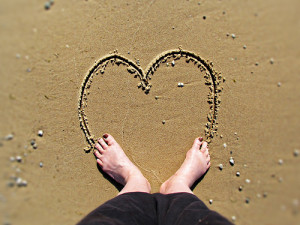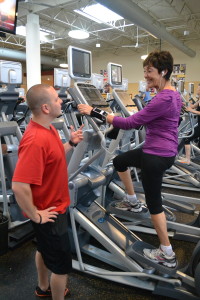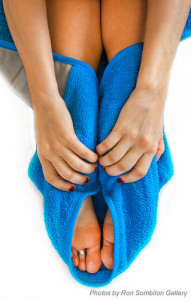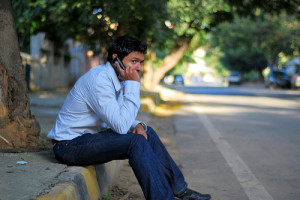by Michelle Sutton-Kerchner
Give yourself the opportunity and you may actually relax …
Every year, statistics confirm the abundance of unused vacation days Americans waste. According to a survey by Glassdoor, a job-search database, the average United States employee who earns paid time off only uses half of it. When vacation time is taken, about 60 percent admit to working during it. Ten percent of them use vacation time to interview for another job.
Fear is often to blame for this nagging need to be continuously available to work. Employees worry about getting behind, replaced, and disconnected. After a year of toiling to be at the top of your game, it can feel risky to remove yourself for a week or even a day.
Do It for Your Health
A well-rested mind is better able to commit to a healthy lifestyle. Only 10 minutes of respite can reenergize, reduce stress, and increase willpower. Imagine what a full day off– or better, a week– can do for your mental capacity.
Other health benefits include higher positive emotions and less depression among those who frequently enjoy leisure activities, including vacations, according to the Mind Body Center at the University of Pittsburgh. Their study included 1,399 participants whose vacation/leisure activity perks also included lower blood pressure and smaller waistline. Who knew a commitment to regular time off could help reach weight loss goals!
A lifestyle fueled by a constant state of stress can sabotage efforts to reach/maintain a healthy weight. Healthy food choices may be replaced by quick, convenient options that are processed. Simultaneously, an increased production of the stress hormone cortisol triggers a false sense of hunger. Comfort food, known to be highly caloric by nature, is a top choice. (Cortisol is also a contributor to belly fat, one of the most dangerous places to store excess fat cells.) Television is easy entertainment when exhausted. These common factors of a hectic lifestyle, with no break in sight, contribute to your waistline.

Studies prove vacations increase longevity. Vacations lower one’s risk of death from heart disease. One heart disease prevention trial suggested men who take annual vacations reduce their overall risk of death by about 20 percent. The risk of death from heart disease dropped by as much as 30 percent. Vacation frequency directly correlated to longevity. Our favorite vacation destinations truly can make our heart happy.
Relentless work spirals health even further. Functioning in a state of constant stress affects our immune system, which leaves us weaker to infection and viruses; reduces performance of vital functions; and increases the likelihood of injury and accident through poor decisions and distracted operation of equipment and vehicles. It is thought chronic stress also may have the ability to negatively impact genetic material in our cell makeup. Take a vacation to help protect your family bloodline.
Of course, many find their work fulfilling and enjoyable. A vacation for these happy workaholics is still critical. Time spent in another environment, at a slower pace (and perhaps with a margarita in hand) does wonders for creative thinking, problem-solving, and overall performance. Without constant interruptions and crisis to handle, it is easier to develop innovative strategies to advance the bigger picture.
How to Make It Happen
With so many neglecting their chance to escape, we often need a refresher on how to actually take vacation time. Given your state of mind, you probably know the type of vacation you crave most: a day to unwind in PJs, a day to surround yourself in nature and use that dusty hammock in storage, or time dedicated to fun adventures. Although you may feel tired, you may be in the grip of mental fatigue. Perhaps this explains why active vacations are a top choice of those who manage time away from work demands.
Train for It
Treat your vacation like a fitness event. Prepare your body to make the most of those precious hours away. Vacationers should manage to fit in downtime to relax and rejuvenate. However, as research proves, many vacations involve activities. It may be a golf outing, a mountain climb, daily beach walks, or biking on the boardwalk.
A vacation does not have to be a marathon tour of every historic site or amusement park ride. But, sometimes it feels like it. Get your body ready! Several weeks prior to time off, focus your workout on increasing stamina and strength. A little effort can energize your days away. Otherwise, you may spend the time catching up on sleep. Approach vacation with the gusto it deserves.

Talk with a personal trainer about how to best train for your vacation. Explain the activities you have planned and what they require. If golfing will be the highlight, train to improve your handicap. Pilates is a great method for this. If you expect to hike a lot, focus on strengthening your lower body to help avoid leg cramps and fatigue. Expand your cardio routine. Regardless of activities, everyone wants increased stamina during vacation.
Summer travel usually means hot weather. Consider this when vacation training. A trainer can help you create a mini-workout to perform outside on your non-Center days. This may help you adjust to vacation’s hot outdoor activities. Begin with casual walks on mild days and keep it going as the temps climb. Increase your pace and distance.
Add hand or ankle weights. If you expect to be lugging a backpack around a campground or park, wear one during this outdoor training. Be sure it’s filled with water. Stay hydrated, especially in the heat. Plan for frequent breaks, including while on vacation. Heat exhaustion can be serious and lead to heat stroke. It feels lousy, made worse by wasting a day spent in your hotel room. Even the nicest accommodations cannot overcome that.
Training for vacation is part of the planning process, which research indicates as one the biggest boosts. One study showed you can experience the boost in happiness up to eight weeks prior to your vacation. (Heck, eight months if you’re really vacation deprived!)
Anticipating the excitement and adventures are a huge part of the experience. If traveling, a pre-planned itinerary also helps meet everyone’s needs and preferences. Upon arrival, time is not wasted debating what to do and when. Research ideas on the Internet or with friends. Reward yourself — plan, dream, and think about it!
Vacation’s Most Needed Muscle
Don’t neglect your relaxation muscle! Start strengthening as you plan your vacation. You need a strong relaxation muscle, regardless of how you spend the time. We are consumed every day with doing, processing, analyzing, and trying– always trying. Our relaxation muscle atrophies.
We step into vacation mode and wham! We have no idea how to relax. Accomplishing downtime is suddenly a bigger challenge than giving a long-distance PowerPoint presentation. This realization has us opening laptops and making phone calls even before hotel check-in. Stop, breathe, and step away from the electronics before someone gets hurt.
Vacation can be a time of challenge. The simple change of scenery puts you out of your element. You are not spending the day in the office, house, car, doing your usual activities and having typical interactions. But, this healthy change builds new synapses in the brain. Research proves an active vacation filled with new challenges is often the most beneficial. Try something new, even if it is the simple act of relaxing!
If you are vacationing with others, the time builds bonds through shared experiences. Families thrive on this chance to connect and grow together. Even the closest family members still may learn something new about each other. Isolated from the familiar, siblings may quit typical bickering and rediscover their friendship. This is definitely healthy for parents’ relaxation muscles, as well. Familial bonding and solidarity; you and yours among the locals. Marital satisfaction also increases through regular vacationing.
Approach your vacation with downtime know-how. Relaxing takes skill. However, it is learnable. Even those who thrive in high-pressure environments can learn how to relax. Honest! Try this progressive muscle relaxation treatment:

What you need:
Ideally 20 minutes, but we’ll settle for five.
A quiet location.
To be comfortable in loose clothing.
What you do:
Breathe deeply.
Focus on each body part, including extremities.
Tighten and loosen muscles as you proceed.
Visualize a relaxing scene as waves of tension roll away.
This is one example of a muscle-relaxation workout. Experiment with different varieties to see which work for you. As you practice these techniques, you will gain an overall improved ability to relax throughout your day, including when stressors occur. Relaxation is a bodily response you can learn. The more it is practiced, the easier it becomes. By vacation, your ability to shift into downtime should be perfected.
Allow Yourself a Break (to Work)

It may actually help to break from the fun and check voicemail or e-mail. Returning home to countless messages and a full In Box can undo some of the lingering vacation bliss. There will be enough piles to tackle in the form of laundry.
Consider setting aside a time during vacation, perhaps even daily, to check-in with home or the office. This may prevent minor issues from becoming disasters. It also eliminates some of the drudgery after vacation.
Be sure it is on your terms. Do not allow your days to be constantly interrupted by texts, posts, and messages. This interferes with the health benefits of escaping, especially since there would be nothing left to escape. The plumbing service, your annoying officemate, relentless boss, and lovesick friend would all be traveling with you, via cell phone and iPad. Vow to check in at a specific time and make yourself available in that window. Then, power off electronics.
Be Restored

The need to recharge is inherent. The body and mind will insist on it, if we do not allow the opportunity. Rundown, we easily develop sickness. Burnt out, our relationships, productivity, and careers suffer. Eventually, these issues can land you on the couch, either your own or that of a therapist. Your body and mind will take the break it needs. Be proactive and provide one on your own terms.
A vacation is like hitting the Refresh button. All the old stuff is still there. You just come back clearer and with some new updates.
Sources
“Average U.S. Employee Only Takes Half of Earned Vacation Time,” at www.glassdoor.com. (Glassdoor’s Q1 2014 Employment Confidence Survey)
“Give Yourself a Break Today,” at www.webmd.com.
“Health Benefits of Taking a Vacation,” by Debbie N. Turner at www.ezinearticles.com.
“What Are the Benefits of Taking a Vacation?” by Chris Blank at www.usatoday.com.
Image Credits
Beach scene (introductory photo): www.flickr.com/photos/21078769@N00/8222670396/
Happy vacation heart: www.flickr.com/photos/katerha/7357649734/
Relaxation mat: www.flickr.com/photos/ronsombilongallery/5634539088/
Work break: www.flickr.com/photos/mynameisharsha/4130056870/
Shine: www.flickr.com/photos/68397968@N07/14090408637/
 Fitness & Wellness News Your Source for Fitness News, Wellness News, Health News, and Nutrition News!
Fitness & Wellness News Your Source for Fitness News, Wellness News, Health News, and Nutrition News!




